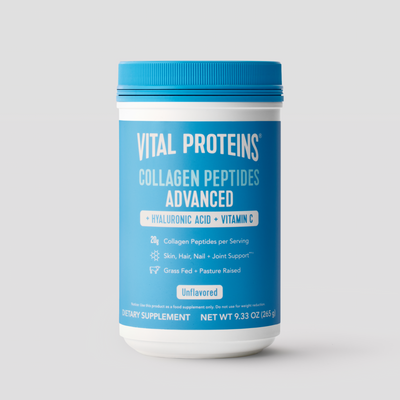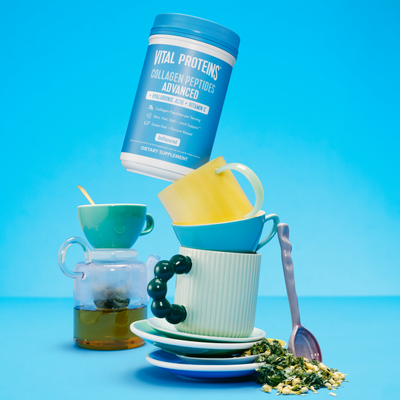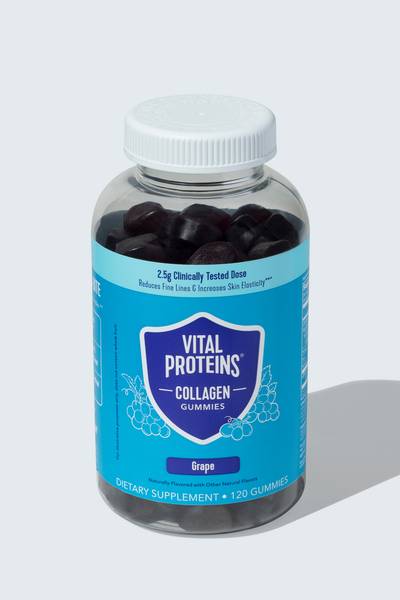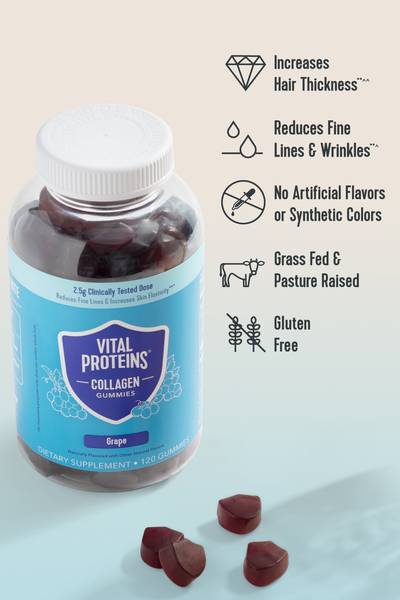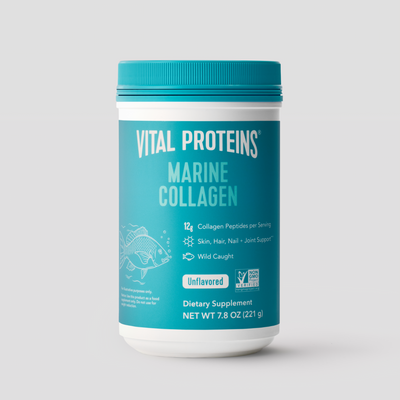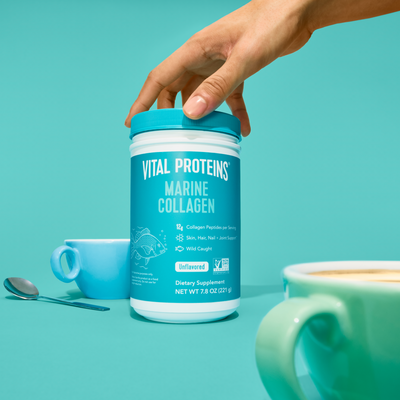Many supplements, especially those containingcollagen, (like Vital Proteins®Original Collagen Peptides) contain glycine — an amino acid. You've likely glazed over it when glancing at an ingredient label in the past.
But maybe you've grown curious about the ingredients that make up your supplements andwhy they are important to your overall health. So, we askedLisa Young, Ph.D., RDN andMaggie Michalczyk, RDN, to weigh in.
Vital Note: This article has been made available for informational and educational purposes only. It is not intended to be a substitute for professional medical advice, diagnosis, or treatment. Always seek the advice of your physician or another qualified health provider with any questions you may have regarding a medical condition. Your licensed healthcare professional can best provide you with the diagnosis and treatment of any medical condition and assist you as well in deciding whether a dietary supplement will be a helpful addition to your regimen.
What is glycine?
Glycine is an amino acid that your body uses to make proteins (specifically collagen) in the body, says Michalczyk. And glycine is the most abundant amino acid in collagen, which — as you might already know — is a structural protein that helps our body's connective tissue, skin, hair and nails stay as healthy as possible, explains Young.
What are the benefits of glycine?
It's important to get enough glycine in order for your body to produce enough collagen. Glycine is also one of the three amino acids that make acreatine.
"Creatine is a compound that helps our muscles get the energy they need for short bursts of activity, something highly active people want to keep in mind," Michalczyk says.
Glycine also helps your body make glutathione, an important antioxidant that protects your body against cell damage. Enough glycine in the body helps to ensure cells can protect against free radical damage and oxidative stress. Glutathione levels naturally decline with age. Ensuring that you get enough glycine as you get older may benefit your health. Glycine also plays a role in sleep quality, as it has a calming effect on the brain, helping us to fall asleep, says Michalczyk.
What foods are high in glycine?
"The body produces glycine naturally," Young tellsLively. "It is also found in foods high in protein."
Foods such as meat, fish, dairy and legumes (like chickpeas, black beans, peanuts and kidney beans) are good sources of glycine, according to Michalxzyk.
How often should you take glycine?
Typically, glycine is already incorporated in your daily diet, depending on the foods you eat. And supplementation provides a higher dose, saysMichalczyk.
Studies have shown that at doses of up to 9g for three days, glycine supplementation appears to be safe. (More tests and studies need to be done. Young children, pregnant or breastfeeding women and people with liver or kidney disease should consult with their doctor before starting supplementation.)
You can get glycine naturally in foods, or via supplement. Like any supplement, you should be sure to check in with a physician before adding it to your routine. Michalyczyk says that for many people, it's more appropriate to incorporate a collagen supplement rather than glycine supplementation. "Collagen supplements are an easy way to boost your glycine intake," she says.














